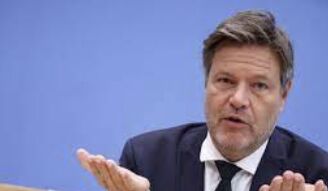Germany's Debt Brake Suspended Again as Court Ruling Sparks Political and Budgetary Crisis
Germany's Finance Minister announces the suspension of the country's debt brake amid a political and budgetary crisis caused by a court ruling on COVID-19 funds. A draft supplementary budget for 2023 will be presented to address the situation. Critics argue that the government has attempted to finance ambitious projects while presenting fiscal discipline. The government now faces frozen spending and delayed approval of next year's budget, with calls for reforming the debt brake. Finance Minister emphasizes the need for consolidation and fiscal stability.
Germany's Finance Minister, Christian Lindner, has announced the government's intention to suspend the country's debt brake following a recent constitutional court ruling. The ruling, which deemed the government's plan to use €60 billion from an emergency COVID-19 fund for the ruling coalition's green agenda as unconstitutional, has created a political and budgetary crisis. As a result, the government will retroactively include over €30 billion spent on an energy price brake in its regular spending, forcing the suspension of the debt brake by declaring an emergency.
To address this situation, Lindner will present a draft supplementary budget for 2023 at a cabinet meeting. The government plans to propose a resolution to the German parliament, declaring an extraordinary emergency situation. However, the finance ministry emphasizes that no new debt will be incurred, as only the funds already used to tackle the crisis will be placed on a secure legal basis. This marks the fourth consecutive year that Germany has suspended the debt brake since its introduction in 2009, previously citing emergencies related to the pandemic and the impact of Russia's invasion of Ukraine.
The budgetary crisis resulting from the court ruling has placed Germany's left-leaning coalition government in an embarrassing position. Critics argue that the government has attempted to create an appearance of fiscal discipline while financing ambitious projects for green transition and energy cost relief through special funds. This embarrassment is especially notable for Lindner, who has positioned himself as the coalition government's fiscal hawk while supporting the use of such funds. The government now faces frozen spending and delayed approval of next year's budget as it grapples with the consequences of the court ruling. Some members of the ruling coalition are calling for a reform of the debt brake to provide greater financial flexibility.
Additionally, Greens Economy Minister Robert Habeck has advocated for a contemporary update of the fiscal rule. However, any suspension of the debt brake would require majority approval from the German parliament, potentially leading to further legal challenges. In a separate interview, Lindner affirmed the coalition's commitment to austerity measures following the budgetary crisis. He stressed the need for significant consolidation, highlighting the double-digit billions required for infrastructure renewal and technology investment. While he did not comment on declaring another emergency in 2024, Lindner expressed his focus on 2023 and the structural changes necessary for fiscal stability.




